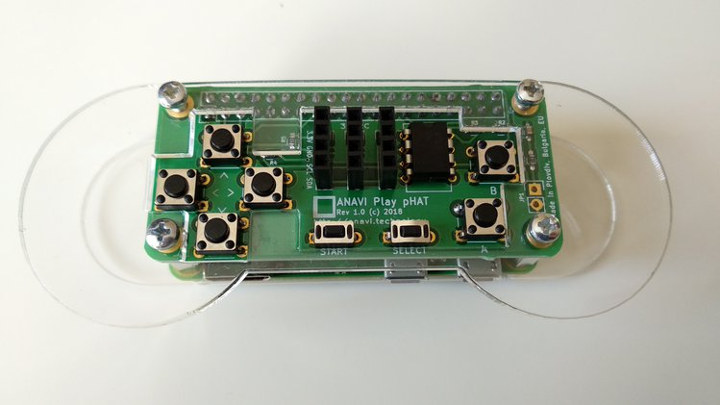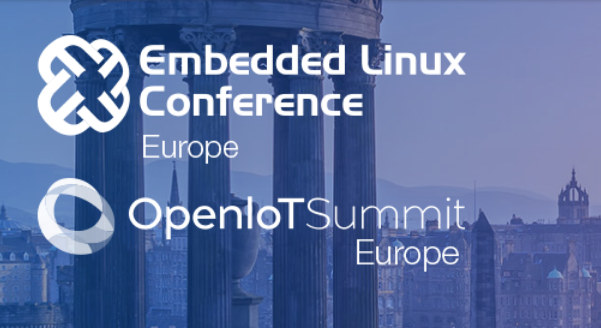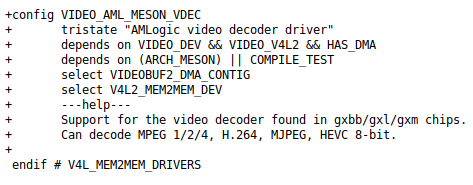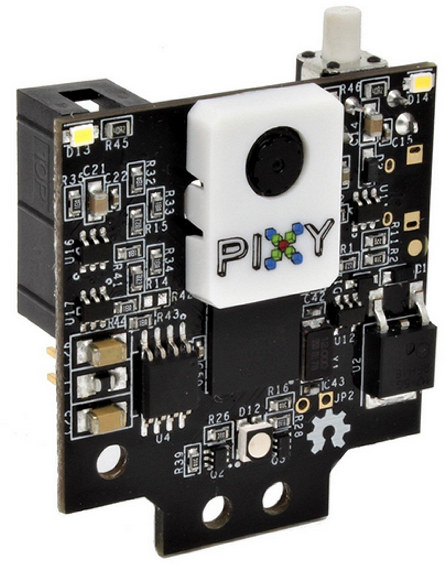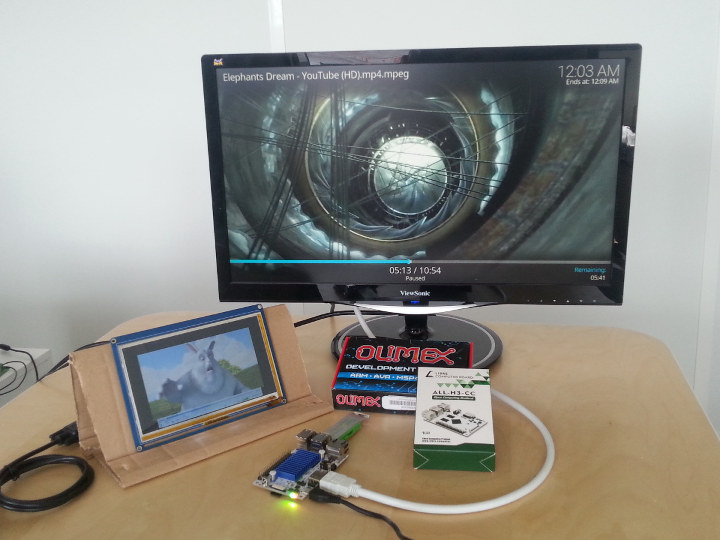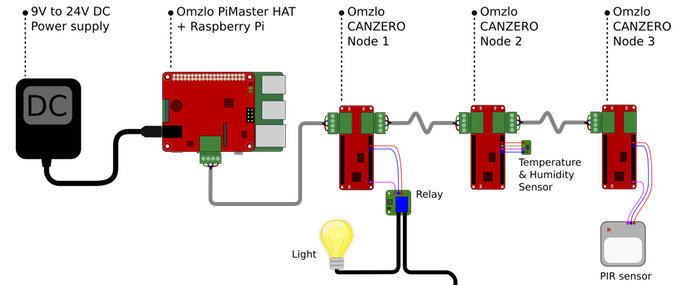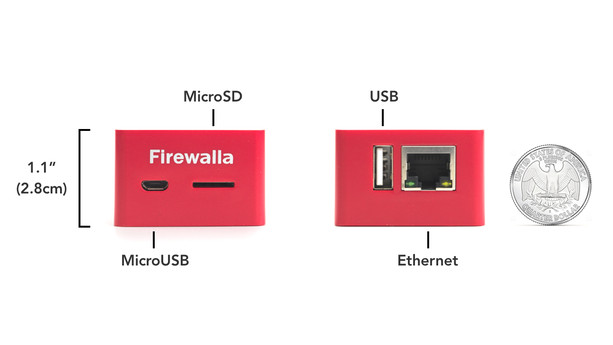Leon ANAVI has been learning KiCad open source EDA suite in his spare time, and developed several Raspberry Pi (p)HAT add-on boards such as ANAVI pHAT Light to control LED RGB strips, or ANAVI Infrared pHAT to handle IR signals. All his boards are open source hardware, and come with source code, and decent documentation as explained in the two aforelinked reviews. Leon has now come with another variant of his open source hardware certified add-on boards with ANAVI Play pHAT designed for playing games on the Raspberry Pi 3 / Pi Zero W boards, or other boards with a 40-pin header, thanks to 8 buttons, and just like his previous designs, three I2C headers are also included to connect sensors. Key specifications and features of the board: Gamepad with eight buttons for playing retro games 3x I2C header for sensors EEPROM with device tree binary overlay OSHW Certification – […]
Embedded Linux Conference Europe & OpenIoT Summit Europe 2018 Schedule
The Embedded Linux Conference & OpenIoT Summit 2018 took place in March of this year in the US, but the European version of the events are now planned to take place on October 21-24 in Edinburg, UK, and the schedule has already been released. So let’s make a virtual schedule to find out more about some of interesting subjects that are covered at the conferences. The conference and summit really only officially start on Monday 22, but there are a few talks on Sunday afternoon too. Sunday, October 21 13:30 – 15:15 – Tutorial: Introduction to Quantum Computing Using Qiskit – Ali Javadi-Abhari, IBM Qiskit is a comprehensive open-source tool for quantum computation. From simple demonstrations of quantum mechanical effects to complicated algorithms for solving problems in AI and chemistry, Qiskit allows users to build and run programs on quantum computers of today. Qiskit is built with modularity and extensibility […]
Amlogic Open Source Video Decoder Driver Coming Soon for S905, S905X and S912 Processors
Allwinner processors aren’t the only ones getting an open source hardware video decoding / encoding support in Linux, as Maxim Jourdan recently submitted a patchset to Amlogic Linux mailing list adding a video decoder driver to some Amlogic processors. The driver is written around the V4L2 M2M framework and currently supports MPEG 1/2/4, H.263, H.264, MJPEG, and (partially) HEVC 8-bit codecs. The driver has been tested with FFmpeg, GStreamer, and Kodi, and currently works on S905 (Meson GXBB), S905X/W/D (Meson GXL), and S912 (Meson GXM) processors. Those processors also support HEVC 10-bit, VP9, and VC1 codecs, and while those are implemented yet, they should be in the future. A separate commit adds support for “Overlay plane for video rendering” which support various YUV layouts and a non-alpha RGB32 layout, and will be useful for Kodi and LibreELEC ports. I came to learn about those two patchsets thanks to Neil Armtrong […]
PIXY2 Computer Vision Camera Works with Arduino, Raspberry Pi, and Other Boards
Cameras may be used to take holiday photos, but when integrated into robotics projects there may purpose is usually to detect objects and/or patterns. We’ve previously covered specialized computer vision camera such as the Linux based JeVois camera powered by Allwinner A33 processor, HICAT.Livera machine vision board, or STMicro STM32F7 Arm Cortex M7 powered OpenMV Cam M7 open source computer vision board. Another popular option is PixyCam PIXY camera that was first launched via a Kickstarter campaign in 2013. The company has recently introduced an updated version, aptly named PIXY2, which can still detect objects – just faster at 60 fps-, and also includes new algorithms to detect and track lines or barcodes. PIXY2 camera specifications: MCU – NXP LPC4330 dual core Arm Cortex M4/M0 @ up to 204 MHz with 264KB RAM, 2MB flash Image sensor – OnSemi (previously Aptina) MT9M114 1296×976 resolution with integrated image flow processor Lens […]
TS80 USB type-C Soldering Iron Up for Sale for $79.99
TS100 digital programmable soldering iron has been popular in recent years due to its compact size, open source STM32 firmware, fast heating, and it does the job. Another advantage is that the soldering can be powered by a standard 19V laptop power supply. As noted in a post about a separate soldering pen board with audio jack, the company behind TS100 has been working on a new model called TS80 powered via USB type C port, lighter & more compact, and supporting soldering tips that connect through a typical 3.5mm audio jack. The good news is that TS80 is now available for $89.99 on Sainsmart under the ToolPAC brand. Use TS80 coupon for $10 discount. [Update: TS80 is now sold on Banggood for $72.99 shipped] TS80 SUB type-C soldering iron specifications: MCU – STMicro STM32F103T8 Arm Cortex-M3 MCU @ 72 MHz with 20KB SRAM, 64KB or 128KB flash Temperature Range […]
Bootlin Releases Open Source VPU Driver for Allwinner Processors with MPEG2 and H.264 Video Decoding
At the beginning of the year, Bootlin – formerly Free Electrons – launched a crowdfunding campaign to bring open source Allwinner VPU driver to mainline Linux. VPU (Video Processing Unit) drivers are used to encode and decode videos. They were successfully in raising enough money from small donors, as well as several companies manufacturing Allwinner development boards including Olimex, Pine64, Libre Computer, FriendlyELEC, and Xunlong Software (Orange Pi). The amount raised (€31,612) was enough to assign two engineers to work on the main goals, as well as some stretch goals namely support for newer Allwinner H3, H5, and A64 processors, and H.265 video decoding. The good news is the company has now delivery the first release for their work on the main goals. The photo above illustrated a demo of Kodi running with bootlin open source Cedrus VPU driver on top of Linux 4.18-rc kernel. Both MPEG2 and H264 are […]
NoCAN IoT Platform Leverages Raspberry Pi & Arduino for CAN Bus Projects (Crowdfunding)
Many IoT projects rely on wireless connectivity through WiFi or Bluetooth, but in some cases it may be more reliable and convenient to use wired connectivity. The CAN Bus is a little like a low bandwidth Ethernet PoE solution for IoT, as it allows to transfer data over a serial connection while provided power at the same time, and can be daisy chain to support multiple boards. Omzlo’s NoCAN IoT platform provides a CAN bus solution leveraging Raspberry Pi 3 board through their PiMaster HAT acting as a CAN bus gateway, and Arduino compatible CANZERO boards to which you can connect sensors and actuators. Omzlo PiMaster HAT specifications: MCU – STMicro STM32F042 Cortex-M0 32bit ARM MCU – 48Mhz. Networking – 125000 bps CAN bus up to 300 meters range GPIO – Communicates with Raspberry Pi through SPI + GPIOs Security – Smart power switch with over-current protection. Power Supply – […]
Firewalla is a Tiny Firewall Appliance Based on NanoPi NEO Board
FriendlyELEC Nanopi NEO and NEO2 boards are really cool and inexpensive little Arm Linux boards suitable for all sort of headless application. I’ve reviewed one with their NAS Kit, and run one around the clock as a Domoticz/MQTT server. So it should come as no surprise that some people want to leverage the hardware in their own products, and Firewalla most likely relies on a NanoPi NEO board for their cute firewall/parental control/VPN appliance.Firewalla specifications: SoC – Unnamed quad-core Arm processor @ 1.0 GHz System Memory – 512 Megabyte DDR RAM Storage – 16GB MicroSD Storage Connectivity – 100 Mbit Software Packet Processing Power – 5V via micro USB port Dimensions – 2.8 cm thick The device ships with a flat Ethernet cable, a USB power cable and US type power adapter, and a one year limited manufacturer warranty. The company does not actually mention NanoPi NEO board anywhere, but the specifications […]


